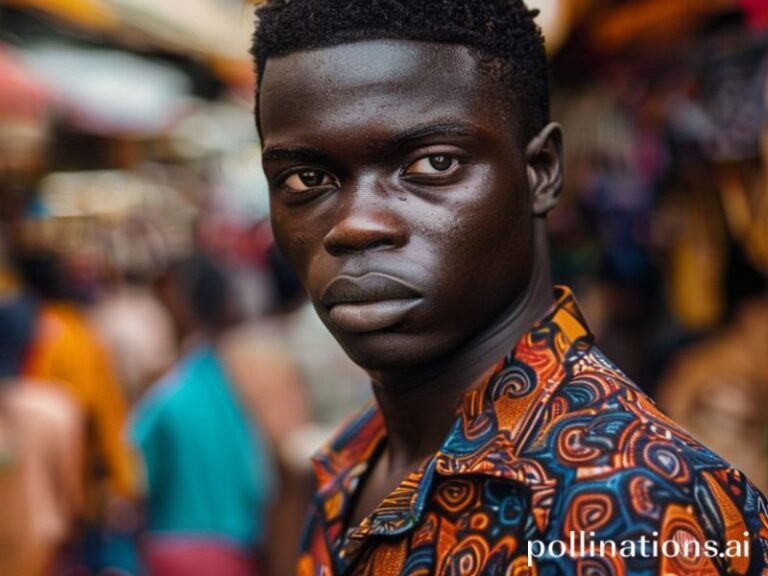New Covid Symptoms Go Global: Micro-Déjà Vu, Pancanadache, and Other Luxuries of Late-Stage Pandemic Life
Geneva, Switzerland — The World Health Organization convened its emergency committee this week to consider an elegantly bureaucratic question: what, exactly, should humanity start panicking about now? The answer arrived in a neatly formatted PDF titled “Updated Clinical Spectrum of SARS-CoV-2 Infection, Revision 14-b (Track Changes Enabled).” Buried between footnotes on aerosol persistence and a tasteful disclaimer about “evolving evidence,” the document lists a fresh bouquet of Covid symptoms—some so niche they feel like inside jokes from an exhausted virus.
First, the classics remain: fever, cough, existential dread. But virologists in Singapore have documented “micro-déjà vu,” a fleeting sensation that you’ve already doom-scrolled today’s headlines in a parallel timeline where the Tokyo Olympics were cancelled again. Dutch clinicians report “taco-bell-ringing,” an auditory hallucination that convinces patients a late-night burrito is a medically necessary intervention. Meanwhile, in Lagos, doctors are tallying cases of “phantom airplane mode,” a neurological hiccup that renders victims unable to log off Twitter even after their phone battery has ceremoniously died.
The global implications are, as ever, both overstated and wildly profitable. Canadian pharmaceutical giant MapleLeafMab has already trademarked “Pancanadache,” the polite, apologetic version of a migraine. In Delhi, Ayurvedic startups are bottling “post-viral spiritual clarity” and shipping it to Silicon Valley at $99 per 50 ml of artisanal confusion. Even Antarctica isn’t spared: researchers at McMurdo Station report penguins exhibiting “ice-screen fatigue,” staring blankly at their own reflections instead of marching cinematically toward extinction like proper wildlife.
Stock markets, those finely tuned seismographs of human panic, responded exactly as you’d expect. Shares in home-delivery conglomerates soared, while the global necktie index collapsed to historic lows, prompting Brooks Brothers to pivot to designer hazmat couture. The European Central Bank quietly added “long social covidity” to its list of systemic risks, somewhere between Italian bond yields and the inexplicable popularity of techno-folk fusion.
Experts—yes, still them—are divided on whether these symptoms represent viral evolution or simply the planet’s collective nervous breakdown expressed through a convenient scapegoat. Dr. Lila Moreau of the Pasteur Institute sighed audibly when asked for comment: “At this point, Covid might be less a pathogen and more a Rorschach test we all failed.” Her American counterpart, Dr. Chase Billington of Johns Hopkins, was more optimistic, noting that “if we can monetize despair effectively, GDP could still hit 2.1 percent next quarter.”
The broader significance, should you crave one, is that pandemics no longer end; they merely rebrand. What began as a bat anecdote in Wuhan has matured into a planetary subscription service whose symptoms update like iOS patches. Borders open and close on the whims of spreadsheets. Citizens of wealthy nations queue for fourth boosters while the rest of the planet negotiates for leftovers, a geopolitical tasting menu served with a side of moral indigestion. The virus keeps innovating; humanity keeps beta-testing denial.
And yet, amid the gallows humor, a stubborn fact remains: the symptoms may be novel, but the underlying condition—our insistence on learning nothing cheaply—is chronic. Every new ache is a reminder that we’re all sharing the same increasingly stuffy waiting room, paging each other with updates no one asked for.
Conclusion: The WHO’s latest bulletin will be obsolete by the time you finish this sentence, replaced by Revision 14-c and whatever fresh absurdity tomorrow’s virologists pull from their hat. In the meantime, stock up on artisanal confusion, practice your polite Canadian headache, and remember: if you feel like you’ve read this article before, you may already have micro-déjà vu. Congratulations—you’re trending pandemically.







